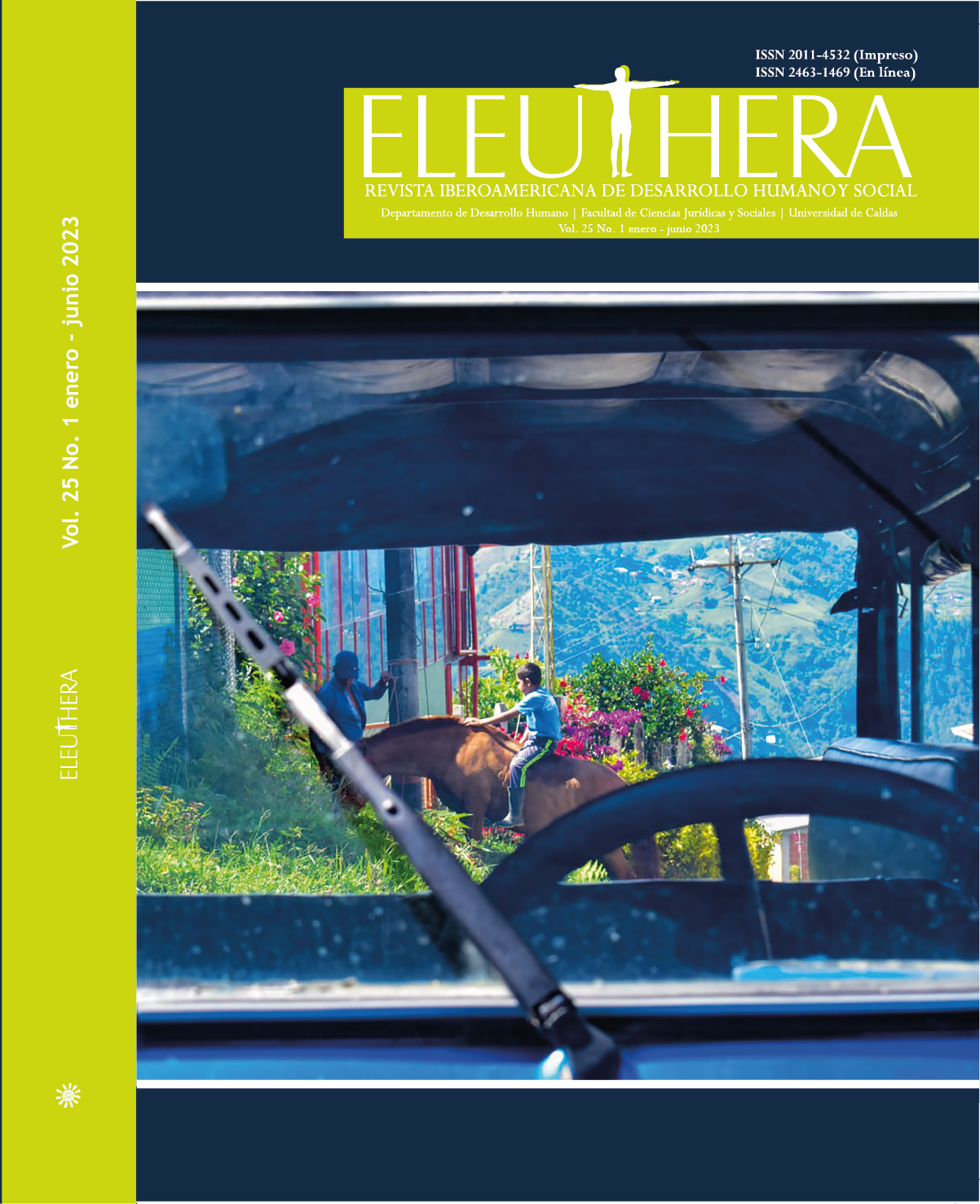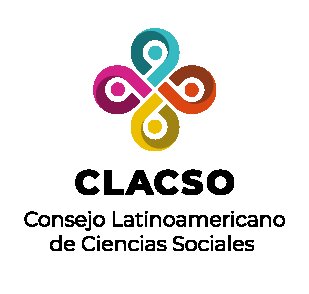Autores/as
Resumen
Artículo de reflexión que tuvo como objetivo explorar las bases de la construcción histórica del trabajo en Colombia, sus representaciones sociales y su incidencia en la constitución de economías sumergidas como el tráfico ilegal de drogas. Se utiliza el método histórico de consulta de fuentes secundarias que atestiguan el comportamiento de la sociedad colombiana al final de la Colonia y en la época republicana, y para vincular los escenarios históricos con el presente se hace referencia al sendero de la dependencia, la teoría crítica de colonialismo y la de las representaciones sociales del trabajo. Los resultados muestran que la psicología social y las representaciones sociales del trabajo tienen consecuencias en la creación y maduración de economías informales y la tendencia al enriquecimiento rápido y fácil en algunos sectores de la sociedad colombiana. Se concluye que, estos contextos terminan consolidándose como base de una ‘industria’ ilegal que se reinventa constantemente, y da lugar al desarrollo de ciertas habilidades, útiles para sobrevivir en un contexto desigual y violento, materializado en la denominada era del narcotráfico, que comenzó en la década de 1970.
Palabras clave
Citas
Acemoglu, D. (2005). The colonial origins of comparative development: an empirical investigation. Revista de Economía Institucional, 7(13), pp.1-51. https://revistas.uexternado.edu.co/index.php/ecoins/article/view/119
Ávila, A. (2022). El mapa criminal en Colombia. Aguilar.
Agnew, R. (1999). Contribution of Social-Psychological Strain Theory to the Explanation of Crime and Delinquency. In F. Adler, W. Laufer, R. Merton. (Eds.). The Legacy of Anomie Theory. (pp.113-135). Routledge. https://www.taylorfrancis.com/chapters/edit/10.1201/9780429335945-6/contribution-social-psychological-strain-theoryexplanation-crime-delinquency-robert-agnew
Alison, L. & Canter, D. (2021). The Social Psychology of Crime: Groups, Teams and Networks (D. Canter, Ed.) (1st ed.). Routledge. https://doi.org/10.4324/9781315237022
Bandura, A. (1977). Social learning theory. NJ. Prentice-Hall.
Bergman, M. (2021). Crime and prosperity: a Latin American paradox. Análisis Político, 102, 3-22. https://revistas.unal.edu.co/index.php/anpol/article/view/99929/82072
Bones, J. (1987). One Love: History, Doctrine and Livity. Pearson & Brunlees Ltd.
Brewer, J., & Miklaucic, M. (2013). Convergence: illicit Networks and National Security in the Age of Globalization (Illustrated ed.). National Defense University Press. https://ndupress.ndu.edu
Buendía, H. (1999). ¿Para dónde va Colombia? Tercer Mundo Editores.
Cabrales, O. (2018). Inclusion and the spiritual intelligence dimension within the postconflict university in Colombia. Franciscanum, 60(170), 215-242. https://doi.org/10.21500/01201468.3906
Cabrales, O. & Martínez Herrera, R. (2019). Iberian-indigenous astuteness and institutionalization deficit: the origins of a lazy work mentality in Colombia. Crime, Law and Social Change, 73(4), 377-393. https://doi.org/10.1007/s10611-019-09868-z
Cabrales, O. (2021). Historical and Social Representations of work in Colombia and their Consequences in the Underground Economies. National University of Costa Rica. Revista de Historia. 84, 331-354. https://www.revistas.una.ac.cr/index.php/historia/article/view/15607
Cabrales, O. (2012). Acceleration of time with respect to the idea of progress and the employment crisis. Entramado, 8(2), 106-122. https://revistas.unilibre.edu.co/index.php/entramado/article/view/3431
Caro, J., Hernández, J., Wilches, L., Gómez, E., Jiménez, C. Y Álvarez, M. (2013). The Subject, Subjectivity and Subjectivity to the Notion of Subjective Responsibility In Colombia’s Armed Conflict . Desbordes, 4(55). https://doi.org/10.22490/25394150.1288
Cervantes, F. (2021). Conquistadores una historia diferente. Turner Publicaciones.
Cirami, L., Ferrari, L. (2018). How to investigate occupational histories? systematic bibliographic review and analysis of the main theoretical-methodological approaches. Anuario de investigaciones, 25, 35-41.https://pesquisa.bvsalud.org/portal/resource/pt/psa-3226
Dammert, L. (2012). Fear of crime. Redefying State-society relations. Routledge.
Dell, M. (2009, jun.). Globalization and Narcos. Finance & Development, International Monetary Fund. https://www.imf.org/en/Publications/fandd/issues/2019/06/globalization-and-drug-trafficking-dell
Diaz Loving, R. (2005). Emergence and contributions of a Latin American indigenous social psychology, International Journal of Psychology, 40(4), 213-227. https://doi.org/10.1080/00207590444000168
Díaz, P. (2012). Colombian Soul. Idiosyncrasies and Cultural Identities in Colombia. Hallazgos, 9(18), 119-141. https://revistas.usantotomas.edu.co/index.php/hallazgos/article/view/723/1003
Dweck, C. (2008). Can Personality be Changed?: The Role of Beliefs in Personality and Change. Current Directions. Psychological Science, 17(6), 391–394. https://journals.sagepub.com/doi/10.1111/j.1467-8721.2008.00612.x
Ellemers, N. (2017). Morality and the Regulation of Social Behavior: Groups as Moral Anchors European Monographs in Social Psychology (1st ed.). Routledge.
Fisher, M. (2022). Capitalist realism: Is there no alternative? John Hunt Publishing.
Fisas, V. (1998). Cultura de paz y gestión de conflictos. Icaria.
García Perilla, J. C., & Devia Garzón, C. A. (2018). Culture and Violence in Latin America: What to do from Citizen Security? Revista Logos,10(1), 158-171. https://revistalogos.policia.edu.co:8443/index.php/rlct/article/view/421
Graeber, D. (2018). Bullshit jobs: A Theory. Simon & Schuster.
Galtung, J. (1998). After Violence: 3R, Reconstruction, Reconciliation, Resolution. Coping with Visible and Invisible Effects of War and Violence. Bakeaz.
Inter-American Commission on Human Rights. (2015). Violence, Children and Organized Crime. OEA/Ser.L/V/II. http://www.oas.org/en/iachr/reports/pdfs/violencechildren2016.pdf
Jenner, M. (2011). International Drug Trafficking: A Global Problem with a Domestic Solution. Indiana Journal of Global Legal Studies.18(2), 901-927. https://www.jstor.org/stable/10.2979/indjglolegstu.18.2.901
Kalmanovitz, S. (2001). Las instituciones y el desarrollo económico en Colombia. Norma.
Kalmanovitz, S. (2017). Obra Selecta. Taurus.
Markova, I. (2003). Dialogicality and Social Representations. The Dynamics of Mind. Cambridge University Press.
Materán, A. (2008). Social representations: a referring theoretician for the educative investigation. Geoenseñanza, 13(2), 243-248. https://www.redalyc.org/articulo.oa?id=36021230010
McGuire, J. (2004). Understanding psychology and crime: Perspectives on theory and action. Open University Press.
McKinlay, A., & Potter, J. (1987). Social representations: A conceptual critique. Journal for the theory of social behaviour, 17(4), 471-487. https://doi.org/10.1111/j.1468-5914.1987.tb00109.x
Melo, J. (2020). Colombia: una historia mínima. Planeta.
Morales, J. (1998). Mestizaje, malicia indígena y viveza en la construcción del carácter nacional. Revista de Estudios Sociales (1), 39-43. https://doi.org/10.7440/res1.1998.05
Mortimer, J. & Borman, K. (1988). Work experience and psychological development through the life span. Routledge.
Moscovici, S. (1976). La psychanalyse, son image et son public. PUF.
Moscovici, S. (1984). The phenomenon of social representations, in R. M. Farr & S. Moscovici (Eds.). Social representations (pp. 3-69). Cambridge University Press.
Moscovici, S. (2000). Social Representations. Explorations in Social Psychology. Polity Press.
Moscovici, S. (2001). Social representations: Essays in social psychology (G. Duveen, Ed.). New York University Press.
Naranjo, A. (1965). Morfología de la nación colombiana. Aproximación a su antropología cultural. vol. XXII, Historia Extensa de Colombia, Academia Colombiana de Historia. Lerner.
Naredo, J. (2001). Configuración y crisis del mito del Trabajo. Scripta Nova, 6, 13-23. https://revistes.ub.edu/index.php/ScriptaNova/article/view/470
Negura, L., Plante, N., & Lévesque, M. (2020). The role of social representations in the construction of power relations. Journal for the Theory of Social Behaviour, 50(1), 25-41.https://doi.org/10.1111/jtsb.12213.
Ovalle, L. P. (2010a). The social representation of drug trafficking like laborer option. Revista CS, (5), 92-122. https://doi.org/10.18046/recs.i5.453
Ovalle, L. P. (2010b). Narcotraffic and power. A field of dispute over legitimacy.Athenea Digital, 17,77-94. https://ddd.uab.cat/pub/athdig/15788946n17/15788946n17p77.pdf
Özdemir, F. & Öner-Özkan, B. (2017). The nature of crime: Different approaches toward the causes of the criminal act. Nesne, 5(11), 345-361. https://www.nesnedergisi.com/makale/pdf/1487940778.pdf
Pécaut, D. (1987). Orden y violencia: Colombia 1930–1954. Siglo XXI.
Pierson, P. (2000). Increasing Returns, Path Dependence, and the Study of Politics. American Political Science Review, 94(2), 251-267. https://doi.org/10.2307/2586011
Ramos, C. (2007). El pensamiento de los aprendientes en torno a cómo se aprende una lengua: dimensiones individuales y culturales. ASELE-CIDE.
Salcedo, E. (2006). Social psychology: foundations of social order and social change. Psicogente, 9(16), 68-74. http://revistas.unisimon.edu.co/index.php/psicogente/article/view/2683
Shoemaker, D. (2018). Theories of Delinquency: An Examination of Explanations of Delinquent Behavior. Oxford University Press.
Skaperdas, S. (2001). The political economy of organized crime: providing protection when the state does not. Economics of Governance, 2, 173–202. https://doi.org/10.1007/PL00011026
Sutherland. E. (2014). Association Theory and Differential Social Organization. In: Encyclopedia of Criminological Theory. SAGE.
Torres Pachón, A., Jiménez Urrego, A., Wilchez Bolaños, N., Holguín Ocampo, J., Rodríguez Ovalle, D., Rojas Velasco, M., Valencia González, M., Hurtado Vargas, M., & Cárdenas Posada, D. (2015). Social Psychology and Post-Conflict: Do we Reform or Have we Revolutionized? Revista Colombiana de Ciencias Sociales, 6(1), 176-193. https://doi.org/10.21501/22161201.1432
Torres-López, T. M., Acosta-Fernández, M., & Aguilera-Velasco, M. D. Á. (2017). Work preparation: Social representations of employment and unemployment of young Mexicans with no work experience. Revista Educación y Desarrollo Social, 11(1), 85–101. https://doi.org/10.18359/reds.1867
Tovar, H. (2009). Los fantasmas de la memoria: poder e inhibición en la historia de América Latina.Universidad de los Andes. https://doi.org/10.15446/achsc.v42n2.53350
Uribe, M. T. (2004). Las palabras de la guerra. Estudios Políticos, 25, 11-34. https://doi.org/10.17533/udea.espo.1397
Uribe, M. T. y López, L. (2006). Las palabras de la guerra. Un estudio sobre las guerras civiles en Colombia. Universidad de Antioquia. https://bibliotecadigital.udea.edu.co/handle/10495/10931
Verd, J.M., & López-Andreu, M. (2012). Employment Instability in Labour Trajectories. A Quantitative Analysis. REIS, 138(1), 135-148. https://doi.org/10.5477/cis/reis.138.135
Vilalta, C. (2012). Los determinantes de la percepción de inseguridad frente al delito en México. Documento de Trabajo. BID.
Weber, M. (2005). The Protestant Ethic and the Spirit of Capitalism. Taylor & Francis.

 PDF (English)
PDF (English)
 FLIP
FLIP






























